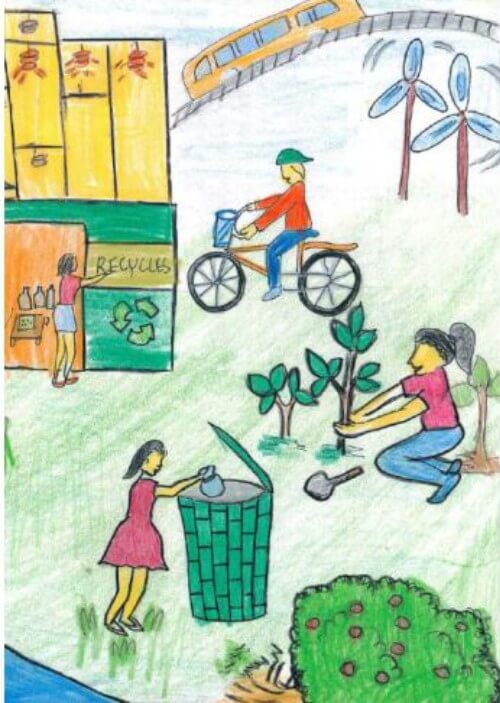Significant investments and emphasis by the Government and its global partners on the social sector in Maldives has contributed to achieving five out of eight Millennium Development Goals (MDGs) by 2010, making it South Asia’s only MDG+ country. Attaining universal Primary education is one of these goals. However, the rate of improvements in achieving three other goals including ensuring environmental sustainability (MDG-7) has been slower and requires intensified efforts.
The School curriculum is organized in such a way that children learn through the local curricula till year 8 (13 or 14 years). For the rest of the school years (until higher Secondary Education is completed) schools use the International General Certificate of Secondary Education (IGCSE, UK). The only exception for this is in three subjects: Fisheries Science, Local Language and Islamic Studies. This set-up in the education system creates a major gap and disconnect in engendering local knowledge including knowledge about the environment.
Environmental education should be a fundamental and integral part of education for all members of the society if environmental management is to be achieved. Knowledge of the environment, its conservation and threats must be integrated with the development of sensitivity to, and respect for, the environment and the formation of proper attitudes towards it. The activities in the PACCB will support and empower school children and/ or youth to advocate for environmental health and environmental justice.




